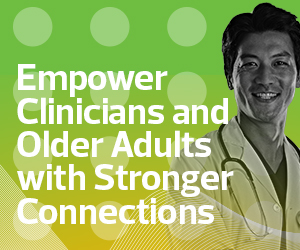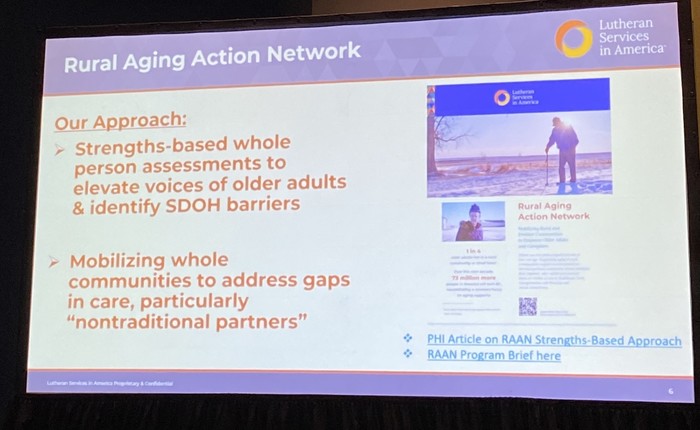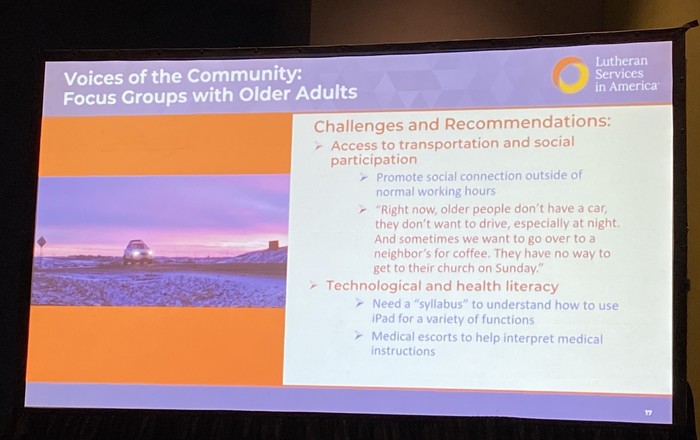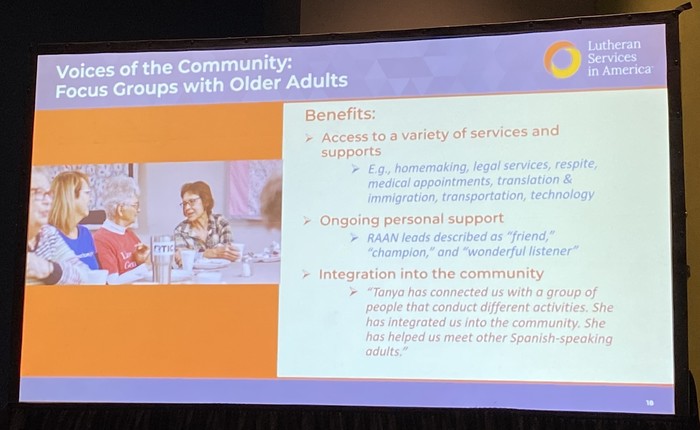Popular narratives about rural communities paint them as lacking assets, and Ashley Washington, senior director of aging initiatives at Lutheran Services in America (LSA), wanted to challenge that.
“There are incredible assets within these communities, and those strong, tight-knit social bonds that we can rely on in home- and community-based services to help expand access to care for older adults,” Washington said Monday at the LeadingAge 2023 Annual Meeting and Expo in Chicago.
The LeadingAge LTSS Center @UMass Boston is in the middle of a three-year partnership with LSA to evaluate RAAN and gauge how it is addressing gaps in care for older adults, among other criteria. Speakers from the center and LSA led a session during the conference to gain feedback from older adults and senior care organizations interested in improving services for rural communities.
DISCOVER: How mobile workflows and smart devices elevate senior care.
Room to Grow for Care in Rural Communities
Though they may own their homes or some land, older adults in rural communities likely face financial concerns, ranging from debt to property upkeep challenges. Despite these issues, many want to age in place and are reluctant to move away.
“While aging is critical in every community, it’s significantly more critical in rural communities, and thinking about how we help folks successfully age in their communities over the years is a goal for LeadingAge and a goal for many of our members who are engaged in these neighborhoods and in these geographic areas,” said Robyn Stone, senior vice president of research at LeadingAge and co-director of the LeadingAge LTSS Center @UMass Boston.
RAAN has proved to be an attractive program that Stone said can inspire other aging services providers to use a partnership model to help older adults connect with services and keep their independence.
“What's really appealing to us about this project is the fact that LSA used their own networks, their own organizations within the LSA family, to become hubs and centers for outreach to older adults living in these communities,” Stone said.
















